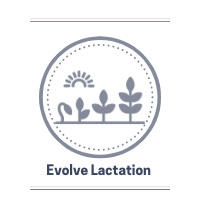Quality Early Lactation Care Is Critical for Newborn & Maternal Health
It's Everyone's Responsibility
Upgrade to paid to play voiceover
This question from a mother who reached out to our local breastfeeding helpline really had me thinking.
She had just brought her 1-day old baby home and at some point realized it had been 6 or 7 hours since he fed.
He was just sleeping peacefully.
She had checked his breathing and he was very responsive if she stimulated him, but he wasn’t showing any h…
Keep reading with a 7-day free trial
Subscribe to Evolve Lactation with Christine Staricka to keep reading this post and get 7 days of free access to the full post archives.




